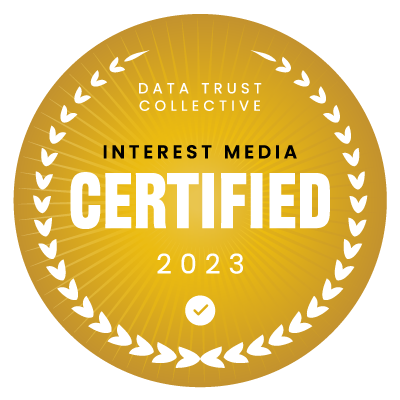
Unlock the Secrets of Your Customers’ Minds with Intent-Based Marketing
- Intent-based marketing helps businesses to connect with their customers in a more meaningful way
- Advertisers need to pay attention to this strategy because it will lead to increased relevance, better targeting, higher ROI, improved customer relationships and better data-driven decision making
- Publishers need to pay attention to this strategy because it will lead to to increased monetization, improved user experience, better audience targeting, better data-driven decision making and increased loyal audience
Digital marketing has undergone a significant shift in recent years, with a growing focus on making connections with end users. Instead of simply counting impressions, businesses are now looking for ways to engage and interact with their target audience.
Gone are the days of guessing what your audience wants. Intent-based marketing is a powerful approach that allows you to understand your customers’ needs and desires, and create tailored content that speaks directly to them. By focusing on intent, you can improve your targeting, increase conversions and build stronger relationships with your customers.
Enter “intent-based marketing.” In very simple terms, intent-based marketing is a strategy that uses data and analytics to understand what customers are looking for, and uses that information to deliver personalized and relevant content and offers to them. It helps businesses to connect with their customers in a more meaningful way by providing them with what they are looking for.
Engaging Users and Tracking Results
One of the key ways that businesses are engaging with their audience is through the use of social media. Platforms like Facebook, Instagram, and Twitter have become invaluable tools for businesses looking to connect with their customers. By creating engaging content, hosting giveaways and promotions, and responding to customer comments and questions, businesses can build a loyal following and increase brand awareness.
Another important aspect of digital marketing is the use of data and analytics. With the rise of big data, businesses now have access to a wealth of information about their customers and their behavior. By analyzing this data, businesses can gain insights into what their customers want and need, and create more targeted and effective marketing campaigns.
Although, according to Hubspot, 14% of marketing leaders say adopting a data-driven marketing strategy will be a top challenge of theirs in 2023.
Many businesses still rely on traditional metrics like impressions and clicks to measure the success of their digital marketing efforts. However, these metrics do not accurately reflect the effectiveness of a campaign in terms of reaching and connecting with customers. Instead, businesses should focus on metrics such as engagement, customer satisfaction, and return on investment.
Understanding Your Audience
Intent-based marketing is a strategy that focuses on understanding the intent of customers and delivering relevant and personalized content and offers based on that intent. It is closely tied to the concept of making connections with the end user, as it helps businesses to better understand their customers and create more targeted and effective marketing campaigns.
It uses data and analytics to identify patterns in customer behavior and search queries, which can reveal the intent behind those actions. For example, a customer who is searching for information about a specific product or service is likely in the research phase of the buying process. A business can use this information to deliver targeted content that addresses the customer’s specific needs and concerns, such as product reviews or comparisons.
Similarly, a customer who is searching for a specific brand or product is likely in the consideration phase of the buying process. A business can use this information to deliver targeted offers or deals, such as discounts or free trials, to encourage the customer to make a purchase.
In a study by Google, they found that 70% of smartphone owners who bought something in a store first turned to their devices for information relevant to that purchase.
This strategy puts a big emphasis on personalization. By understanding the intent of customers, businesses can deliver personalized content and offers that are more likely to be relevant and appealing to them. This not only improves the customer experience, but also increases the chances of conversion and the lifetime value of the customer.
Why It Matters to Advertisers
Advertisers should focus on intent-based marketing for several reasons:
- Increased relevance: By understanding the intent of customers, advertisers can deliver more relevant content and offers that are more likely to be of interest to them. This improves the customer experience and increases the chances of conversion.
- Better targeting: Intent-based marketing allows advertisers to target specific groups of customers based on their intent, increasing the chances of reaching the right audience and driving conversions.
- Higher ROI: By delivering more relevant and personalized content and offers, intent-based marketing can lead to higher conversion rates and a higher return on investment (ROI) for advertisers.
- Improved customer relationships: By providing customers with what they are looking for, intent-based marketing helps to build trust and establish a deeper relationship with customers, leading to increased loyalty and lifetime value.
- Better data-driven decision making: Intent-based marketing provides advertisers with a wealth of data on customer behavior and intent, which can be used to make more informed marketing decisions and optimize campaigns over time.
An intent-based marketing strategy allows advertisers to understand and serve the needs of their customers in a more meaningful way, which leads to increased relevance, better targeting, higher ROI, improved customer relationships and better data-driven decision making.
Why It Matters to Publishers
Publishers should focus on intent-based marketing for several reasons:
- Increased monetization: By understanding the intent of their audience, publishers can deliver more relevant and personalized ads, which can lead to higher click-through rates and increased revenue.
- Improved user experience: Intent-based marketing allows publishers to deliver content and ads that are more relevant and useful to their audience, leading to an improved user experience and increased engagement.
- Better audience targeting: Intent-based marketing allows publishers to target specific groups of readers based on their intent, which can help to increase the relevance and effectiveness of their advertising.
- Better data-driven decision making: By collecting and analyzing data on reader behavior and intent, publishers can make more informed decisions about the type of content and ads to deliver, leading to an improved user experience and increased revenue.
- Increased loyal audience: By providing a more personalized and relevant content and ads, publishers can increase the loyalty of their audience, which leads to increased engagement, higher lifetime value and better retention.
It allows publishers to deliver a more personalized and relevant experience to their audience, which leads to increased monetization, improved user experience, better audience targeting, better data-driven decision making and increased loyal audience.
Intent-Based Marketing is the Future
Businesses must understand the importance of creating engaging content and using data and analytics to understand their customers in order to drive success. Intent-based marketing is a key strategy for making connections with the end user by understanding the intent of customers, by delivering relevant and personalized content and offers based on that intent. This improves the customer experience and increases the chances of conversion and customer lifetime value.
Interested in learning more? Check out our Free White Paper on The Unbeatable Nature of Intent-Based Advertising













